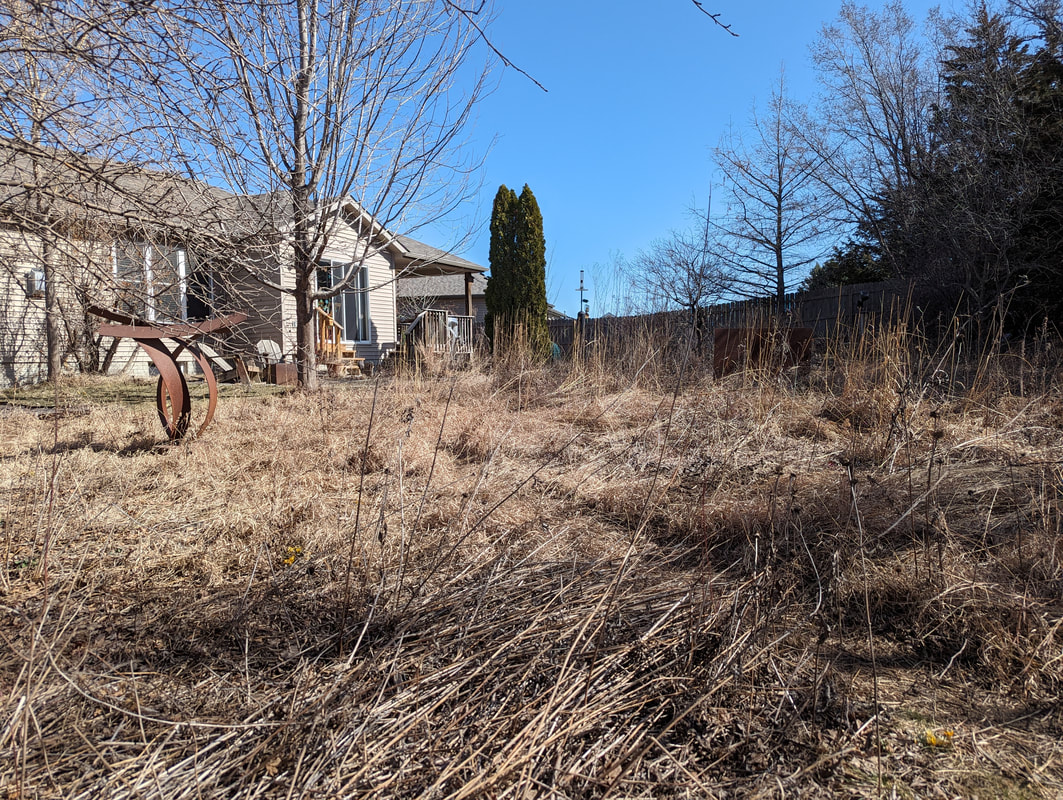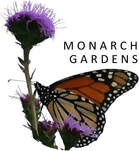I am a little frustrated with the unending oversimplification of "don't clean up the garden until temps are in the 50s." You know what? People CAN handle nuance and I think are craving it so they can make better, more informed, local decisions. We don't have to dumb it down or make it so simple that everyone does the same thing everywhere -- that's what led us to the problems caused by lawns, mulch, over fertilizing, and hosta.
So let's do this:
1) Do you HAVE to clean up the garden? Why? If it's just because you're bored and it's nice outside that's not ample justification. Are you cleaning up to allow more sunlight to hit the soil surface so flower seeds can germinate? Are you getting rid of diseased material? Often, there's no real need to clean up. Not doing so (especially too early) will allow whatever is overwintering to take its time and emerge when it needs to and when, hopefully, the plant community around it is ready to provide resources. Maybe you at least leave SOME areas as they are and never touch them, rotating such areas year to year. Maybe you just clean up the front beds to appease neighbors a bit and show you are intentionally managing the wilder space. Lots of variables here that are highly local.
2) Air temps have nothing to do with when to clean up -- if you have to clean up. Generally, if you want to go by temps, go by soil temps at or above 50 (in Nebraska we have a wonderful resource that provides a general baseline and I suspect you have something similar in your state: https://cropwatch.unl.edu/soiltemperature). Soil temps at 50 is about the time some plants start stirring again, and in a normal year around these parts wouldn't be for another month or so, but this year looks to be weeks early. Just because it's weeks early doesn't mean you should rush outside; not every species can or will adapt to a changing climate, and certainly not this fast (or even in decades), so give them a break and don't step on them or pull back the blanket too early. It's still winter. IT'S STILL WINTER. Our air temps at HQ are 25-30 degrees ABOVE NORMAL right now. It's not spring. It's NOT SPRING -- even if we never get cold again, so much is not ready. (In fact, we will be hitting 15 in two nights.)
3) Just the phrase "cleaning up the garden" feels problematic. It implies the winter garden is messy or dirty -- and as you know, we already have an image and phraseology problem with "messy" when it comes to natural gardens. Maybe in order to help shift the paradigm we shouldn't see the gardens as needing a clean up. How many prairie dogs, squirrels, birds, raccoons, and other assorted fauna to do you see "cleaning up" the prairie or forest? Why are you throwing away all this good bird-nest-making material and free mulch? Let's look at the majority of sedge (Carex) species that really don't even need mowing or trimming back or cleaning up -- their dead leaves provide good soil amendments and weed control and, a few weeks into the growing season, won't even be noticeable with all the new growth. Same goes for leaving some forb stems at 12-18" high for the 25% of native bees species that are cavity nesters (Zizia, Echiancea, Asclepias, Eryngium, Eutrochium are some faves here).
Obviously, the above advice needs to be shifted regionally, as those in the south start garden chores (ugh) weeks and weeks sooner than folks in the north. This climate change thing is really going to mess up a lot for gardeners and the wildlife they may be gardening for as activities and emergence times get out of sync. Perhaps the best we can do is to do keep doing less and bear witness to the strange times we've created, then call out those strange times and advocate for an end to larger practices that cause climate change -- including much in the landscape install and maintenance world.
If you're itching to get outside and do something, remove more lawn and prep the space for new beds. Build some cues to care (benches, arbors). Or, enjoy that you don't have to work, sit back and soak up some sun, enjoy an iced tea, and appreciate that you have a landscape that doesn't require constant tending and messing, just like you planned on and wanted when you started down the natural garden road. Even better, get involved in local and regional advocacy to end habitat loss and burning of fossil fuels -- we shouldn't even be having this garden management conversation for another few weeks.



 RSS Feed
RSS Feed

